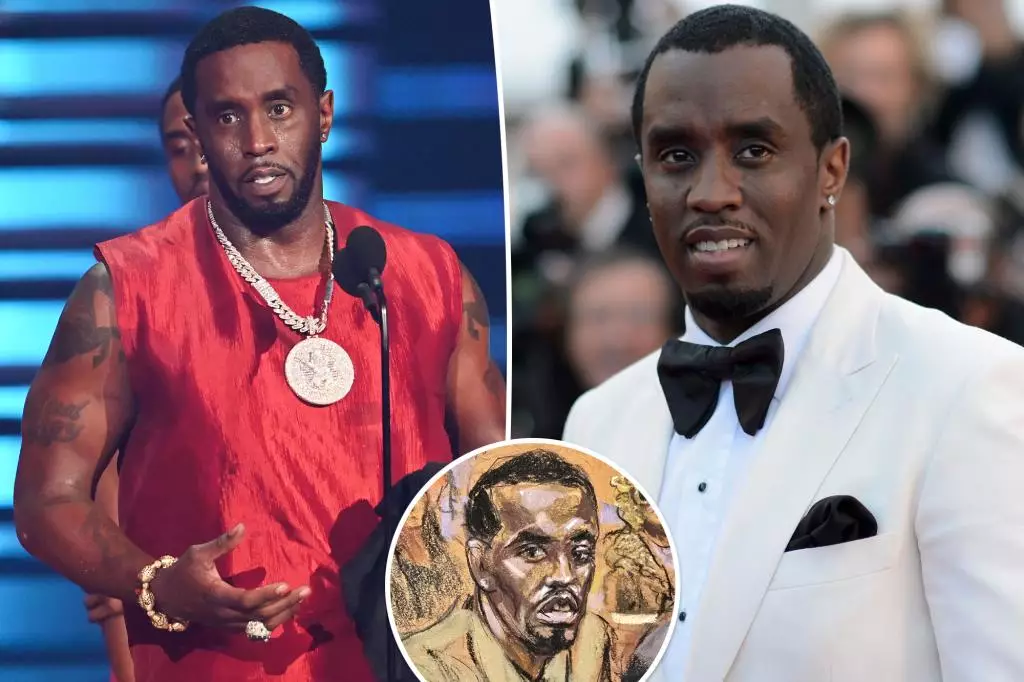The legal landscape surrounding celebrity figures is often fraught with complexities, especially when it involves serious allegations such as sexual assault. One particularly striking case involves Sean “Diddy” Combs, who has recently found himself at the center of a legal storm. A woman, identified as Jane Doe, brought forth allegations that he assaulted her two decades ago during a party in New York City. Recently, a judge in the Southern District of New York, Judge Mary Kay Vyskocil, mandated that Doe reveal her identity in the ongoing lawsuit, setting off waves of discussion and introspection regarding the ethics of anonymity in such sensitive legal proceedings.
Judge Vyskocil’s ruling has illuminated the inherent tension between a plaintiff’s desire for privacy and the public’s right to knowledge, particularly when a high-profile defendant like Diddy is involved. In her legal opinion, Vyskocil recognized the difficulties Doe faces in maintaining anonymity, particularly given the highly public nature of her allegations against a globally recognized figure. The judge acknowledged that such accusations can subject individuals to intense scrutiny and potential repercussions in their personal lives. Nonetheless, she firmly maintained that by choosing to file a lawsuit against a prominent individual and implicating other entities as complicit in the alleged misconduct, Doe forfeited her claim to anonymity.
The court’s demand for Doe to disclose her identity poses broader questions about the legal process and the expectations placed upon those who allege wrongdoing in high-stakes cases. In essence, the ruling underlines a critical juncture in the balance of interests: the desire for personal privacy versus the judicial system’s need for transparency and accountability. If Doe chooses not to comply by the stipulated date of November 13, her lawsuit risks dismissal, which further accentuates the pressures individuals face when making such serious claims public.
This legal battle isn’t an isolated incident but rather part of a larger pattern that has seen Diddy navigate numerous sexual assault allegations over the past year. Represented by attorney Tony Buzbee, Doe is one of 120 accusers, illustrating a troubling landscape in which various narratives of abuse and complicity come together, spanning several decades and involving multiple alleged victims. Buzbee’s involvement speaks to a concerted effort by individuals to claim agency and seek justice against perceived injustices they experienced.
As the allegations against Diddy unfold, they are compounded by his reputation and stature within the entertainment industry. With notable figures often facing public judgment, the implications of these cases resonate beyond the courtroom. When Diddy’s ex-partner, Cassie Ventura, accused him of rape and abuse in November 2023, the immediate fallout was felt widely across social media platforms and in public discourse. Although the couple quickly settled the lawsuit, the absence of an admission of guilt has left lingering questions and sparked ongoing debates regarding the culpability of public figures in cases of misconduct.
Moreover, Diddy’s legal troubles were compounded by his recent indictment on serious charges of racketeering conspiracy, sex trafficking, and transportation for the purpose of prostitution. Being held without bond at the Metropolitan Detention Center in Brooklyn, known for its harsh conditions, adds yet another layer of complexity to an already intricate narrative. Combs’ team continues to assert his innocence, emphasizing that the number of lawsuits filed does not equate to guilt.
As we focus on the road ahead, the situation surrounding Diddy remains paramount. His trial is scheduled for May 5, 2025, coinciding with significant public events such as the Met Gala, which may further amplify media coverage and public engagement with the case. In an era when public opinion can significantly influence legal proceedings, the outcomes of these high-profile cases may redefine societal interpretations of due process and accountability, particularly in matters involving sexual assault.
Ultimately, the unfolding saga of Sean “Diddy” Combs encapsulates not only the struggles of one alleged victim but also highlights broader societal issues regarding sexual assault, accountability, and the quest for justice within a public narrative. As the story develops, it invites observers to engage critically with the complexities of the legal system, the weight of allegations, and the multifaceted dynamics at play when prominence intersects with accusations of misconduct.

